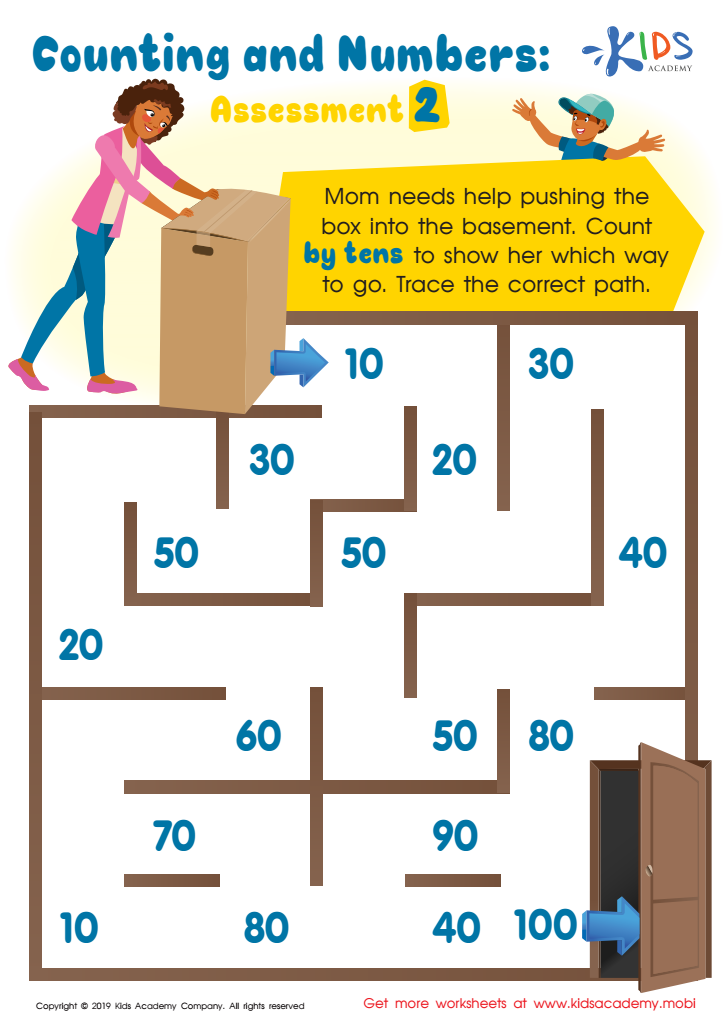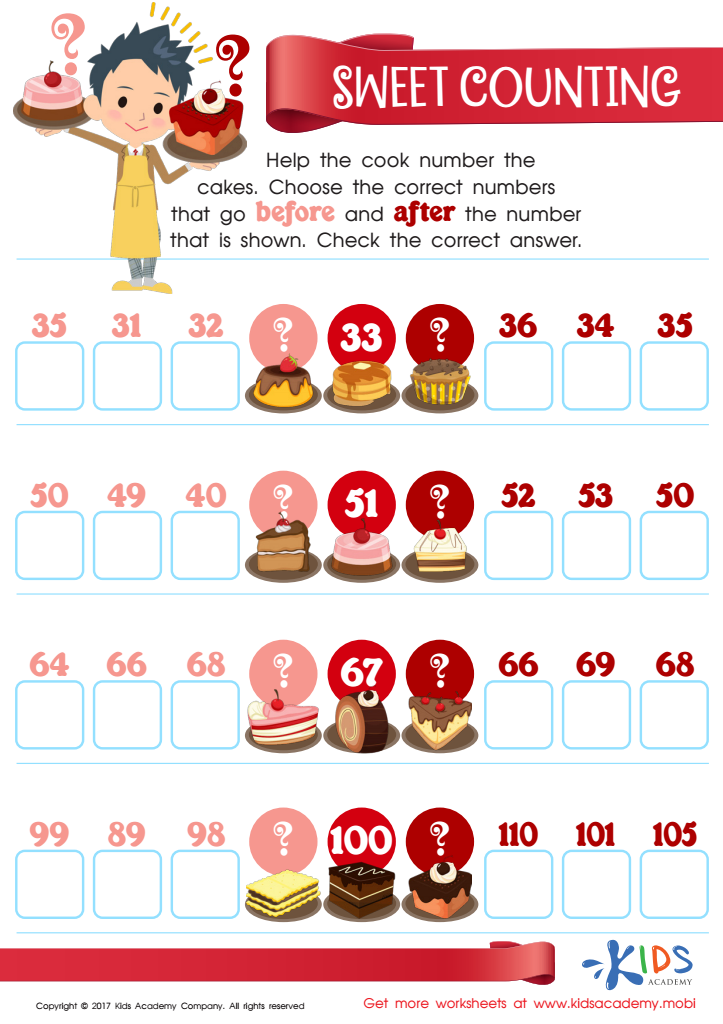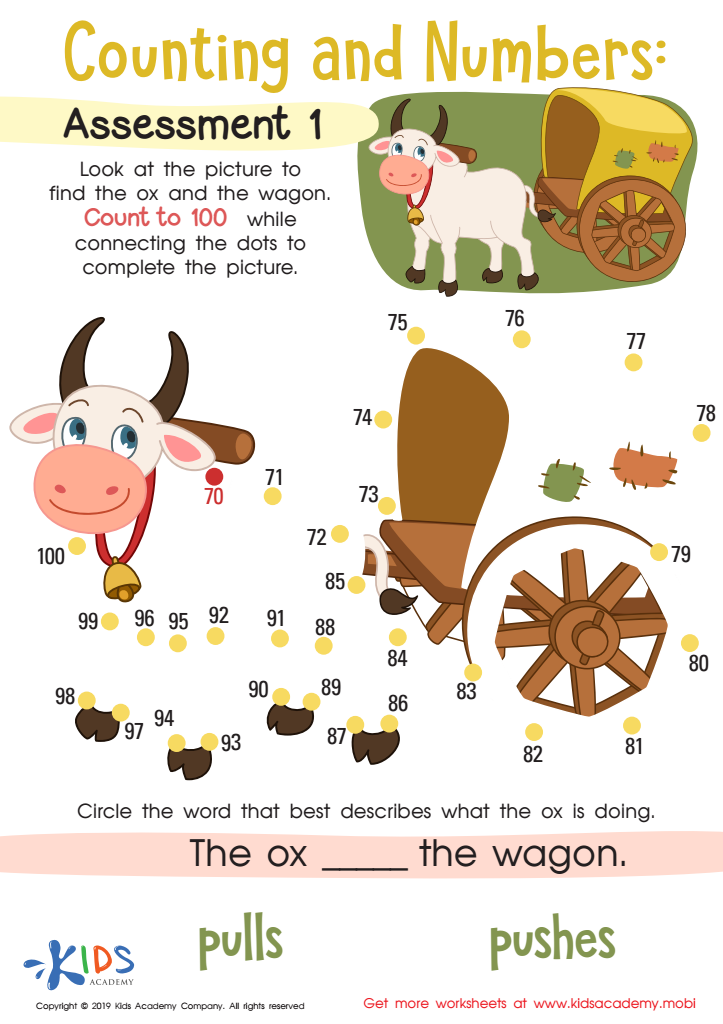Basic Addition Numbers up to 100 Worksheets for Ages 6-9
3 filtered results
-
From - To
Welcome to our Basic Addition Numbers up to 100 worksheets, specially designed for children ages 6-9! These engaging and colorful worksheets are perfect for helping young learners practice their addition skills in a fun and interactive way. Covering essential learning skills, our worksheets encourage students to solve addition problems up to 100, enhancing their numeric comprehension while building confidence in math. With varied exercises, children can work at their own pace, developing a strong foundational understanding of basic addition. Ideal for classroom use, homeschooling, or extra practice, these worksheets make learning math enjoyable and accessible for all young learners. Start your child's math journey today!


Counting and Numbers: Assessment 2 Worksheet


Sweet Counting - Part 1 Worksheet


Counting and Numbers: Assessment 1 Worksheet
Basic addition skills up to 100 are foundational for children aged 6-9, as they form the cornerstone of their numeracy and critical thinking abilities. Mastering these skills not only enhances children's confidence in math but also develops their problem-solving capabilities for everyday situations. Parents and teachers should care about basic addition because it influences a child's academic trajectory; strong arithmetic skills lay the groundwork for more complex mathematical concepts in later grades, such as subtraction, multiplication, and even fractions.
Furthermore, proficiency in addition fosters a child's ability to navigate real-life scenarios like budgeting, time management, and measurement, which becomes increasingly important as they grow. Engaging young learners with fun, interactive activities can help solidify their understanding while making the process enjoyable.
Lastly, early investment in basic math skills can bridge performance gaps that may lead to challenges in school, fostering a lifelong appreciation for the subject. By nurturing these essential skills, parents and teachers can empower children with the tools for success both academically and in everyday life. Ensuring that children grasp basic addition is not just an educational priority; it's an investment in their future capabilities and self-confidence.
 Assign to My Students
Assign to My Students
















